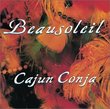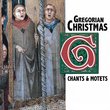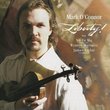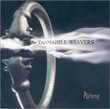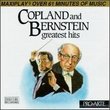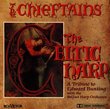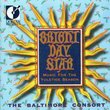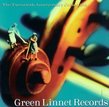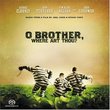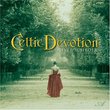| All Artists: Jules Massenet, Charles Gounod, Hector Berlioz, Ambroise Thomas, Georges Bizet, Edouard Lalo, Giacomo Meyerbeer, Bertrand de Billy, Orchestra of the Royal Opera House, Roberto Alagna Title: Roberto Alagna - french arias Members Wishing: 0 Total Copies: 0 Label: EMI Classics Release Date: 4/10/2001 Genre: Classical Styles: Opera & Classical Vocal, Historical Periods, Classical (c.1770-1830) Number of Discs: 1 SwapaCD Credits: 1 UPCs: 724355701220, 724355701251 |
Search - Jules Massenet, Charles Gounod, Hector Berlioz :: Roberto Alagna - french arias
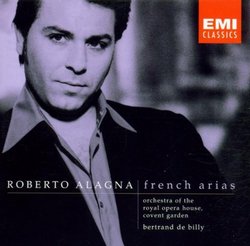 | Jules Massenet, Charles Gounod, Hector Berlioz Roberto Alagna - french arias Genre: Classical
Roberto Alagna is without peer among contemporary tenors in the French repertory, as this excellent collection of staples, sprinkled with rarities, demonstrates. He has the right blend of sweetness for the lyric selections... more » |
Larger Image |
CD DetailsSynopsis
Amazon.com Roberto Alagna is without peer among contemporary tenors in the French repertory, as this excellent collection of staples, sprinkled with rarities, demonstrates. He has the right blend of sweetness for the lyric selections and exciting vocal heft for those requiring more muscle. If one must find something to carp at, it's the tenor's occasional tendency to slip into an inappropriate Italianate verismo style. Examples of the "sweet" Alagna are his gorgeous floating soft ending to "Je crois entendre encore," from Bizet's The Pearlfishers, and the lovely head voice in the Lalo aria. His "Rachel, quand du Seigneur," a favorite of tenors from Caruso to Richard Tucker, is taken at a sluggish tempo, but it has the requisite vocal finish and characterization. And Alagna creates the necessary sense of wonder in the opening of "Pays merveilleux," from Meyerbeer's L'Africaine. The Bruneau selection that closes the disc is a welcome rescue of a lovely farewell-to-life aria from a long-forgotten late-Romantic opera. Unlike most collections done with a generalized, one-size-fits-all approach, Alagna's finds him almost always in character. Bertrand De Billy's accompaniments are sometimes too restrained (the orchestral introduction to the Bizet aria is downright sleepy), but that shouldn't keep admirers of French opera and world-class singing from grabbing this disc. --Dan Davis Similarly Requested CDs
|
CD ReviewsThe first great French tenor of the 21st century! Joy Fleisig | New York, NY United States | 06/22/2001 (5 out of 5 stars) "Roberto Alagna is probably the greatest tenor to come from France since Georges Thill, widely considered to have been the greatest French tenor of the 20th century. This is unquestionably Alagna's best solo album, the equal of his astonishing work in Werther. All of his virtues are amply displayed here: a splendid voice, directness and honesty of expression, superb diction in his native French, intelligence, imagination, complete and utter immersion in character, and the ability to make each word he sings mean something. Throughout the disc we hear nobility and sweetness, elegance and passion, tenderness and pain, even charm and humor. This is not merely a 'stud', but a great artist in the service of music. Most important of all is Alagna's questing spirit. While some superstar singers barely change or add to their repertory over decades of performing, Alagna is eager to mine the rich lode of French repertory (of which we only know a few nuggets) and bring otherwise unknown or forgotten works to a new public. Some of these arias haven't been recorded in at least 60 and even almost 80 years. In fact, so rarely performed are they that the ROH Orchestra had to borrow the orchestral parts for two arias from the Orchestre de Paris! Since his career began Alagna's voice has grown in drama and power with little loss to the basic lyric quality of his instrument. He does so well with the more dramatic selections not only because of his great skill as a vocal actor, but also because he actually sings the arias beautifully and lyrically instead of just belting them. He is strongest when he can combine heroism with introspection, as in the arias from `Samson et Dalila', `Le Cid', and especially `La Juive', where he perfectly embodies the inner conflicts of these three very different religious men. Indeed I found the grief and guilt of a father about to lose his daughter in the last absolutely heartwrenching. Still, I hope Alagna waits a long time before doing any of these roles on stage, and limits his appearances in them to small theatres. The best track on the disc is `O Paradis', filled with the genuine wonder of discovery. In the aria from `Joseph', Alagna convinces in the widest range of emotions from nostalgia to rage to the desperate desire for reconciliation, and the aria from `Les Abencerages' is also a dramatic tour-de-force. There is also a truly heroic rendition of `Nature immense' from `La Damnation de Faust'. The glorious paean to friendship from `Iphigenie en Tauride' is both urgent and sensitive, and the farewell to life from `L'Attaque du Moulin' is sung even more beautifully than by some historic tenors.He also shows that he is quite capable of the light touch, such as in the aria from `Le Roi d'Ys' and especially `Elle ne croyait pas' with its beautiful diminuendi. The aria from `Maitre Pathelin' which opens the disc is a sweet, lovely serenade capped by a splendid high C#. It's a pity that he does not take all of `Je crois entendre encore' as sweetly and headily as he takes certain phrases, but I admit to being extraordinarily picky about the performance of this aria and am only truly satisfied by Gedda.As with his performances at the Met and elsewhere, Bertrand de Billy proves his skill in bringing out the spirit and elegance of French opera. If his tempi are a trifle slow (and nowhere near as much as those of, say, Michel Plasson) they only aid musical expression. He has been a long time friend and collaborator of Alagna, and their rapport shows here. The orchestra plays very well and London Voices makes a fine choral contribution to the `Samson et Dalila' scene.If there is any complaint to be made, it is that while Alagna differentiates character superbly, he doesn't differentiate actual musical style much. Over 100 years separate the Gretry and Bruneau arias, and he sings them basically the same way. And there are a few moments where he overdoes the heroism (and volume) a bit, notably in `Anges du paradis' and the Gretry aria. Still, in the context of the disc's overall splendor, these are minor flaws. It's also a shame that the originally announced aria from `Herodiade' is not included. I presume it didn't fit onto the otherwise generously filled (73 minute) disc.By and large the documentation is also very good. Admirers of French opera who have only heard the rarities on historical labels with minimal documentation will greatly appreciate the full texts and translations included here. There is a nice essay on the French tenor tradition 'which Roberto Alagna inherits' written by noted English critic John Steane, who also provided explanatory notes for each track (some for the rarities could have been slightly more detailed). Although I am glad that Alagna isn't subjected here to the sugary publicity gush that most singers these days get in their CD booklets (so much for him being 'overhyped'!), it's a pity that there is no biographical or career information about him or de Billy.I really hope that Alagna gets his wish to have some of these and other rare operas recorded in their entirety and staged, but I doubt if the political and economic situation in the opera world will permit it. Even if performances or complete recordings are impossible, Alagna absolutely must record many more solo French albums. A Berlioz disc with both Enee's and Hylas' arias from Les Troyens is essential. Certainly this wonderful stage comedian should also record more comic repertory. And of course, he should continue to bring us many more recordings of arias that haven't been recorded in ages, and even some world premieres. I also seriously hope that he gives us his interpretations of French song repertory as well. Frankly, if he wants to record the Paris phone book, that's fine with me too!" A fabulous and elegant recording Joy Fleisig | 05/06/2001 (5 out of 5 stars) "Roberto Alagna brings great style and sensitivity to this intriguing collection of famous and lesser-known arias. Hearing Alagna sing in French is truly a blissful experience for any fan of French opera. From the haunting opening aria by Bazin to Pylades' gorgeous hymn to friendship in Gluck's "Iphigenie", Alagna is superb,investing the music with pathos, tenderness, and charm--the collection especially highlights his elegant and delicious French phrasing. A MUST HAVE for fans of Roberto and French opera." A truly great recording martyclaus | Finland | 06/10/2001 (5 out of 5 stars) "This album is among the best I ever heard. Alagna's beautiful tenor tone is truly amazing throughout the CD and his perfect French diction is very enjoyable. After listening mr. Alagna's French I prefer him to anyone else I've heard singing this repertoire. IMO the loveliest songs are "Je pense à vous" with the easy high C# and the light "Vainement, ma bien-aimée". I think the arias from Le Cid and Samson are a bit too heavy for him, but however, he sings them with the great interpretative power. It's possible that he uses a little too much pianissimo in the Bizet aria, but on the other hand that's where I think his voice is at its best. Nothing can take the fifth star away! This CD will be with me anywhere I go..."
|

 Track Listings (15) - Disc #1
Track Listings (15) - Disc #1